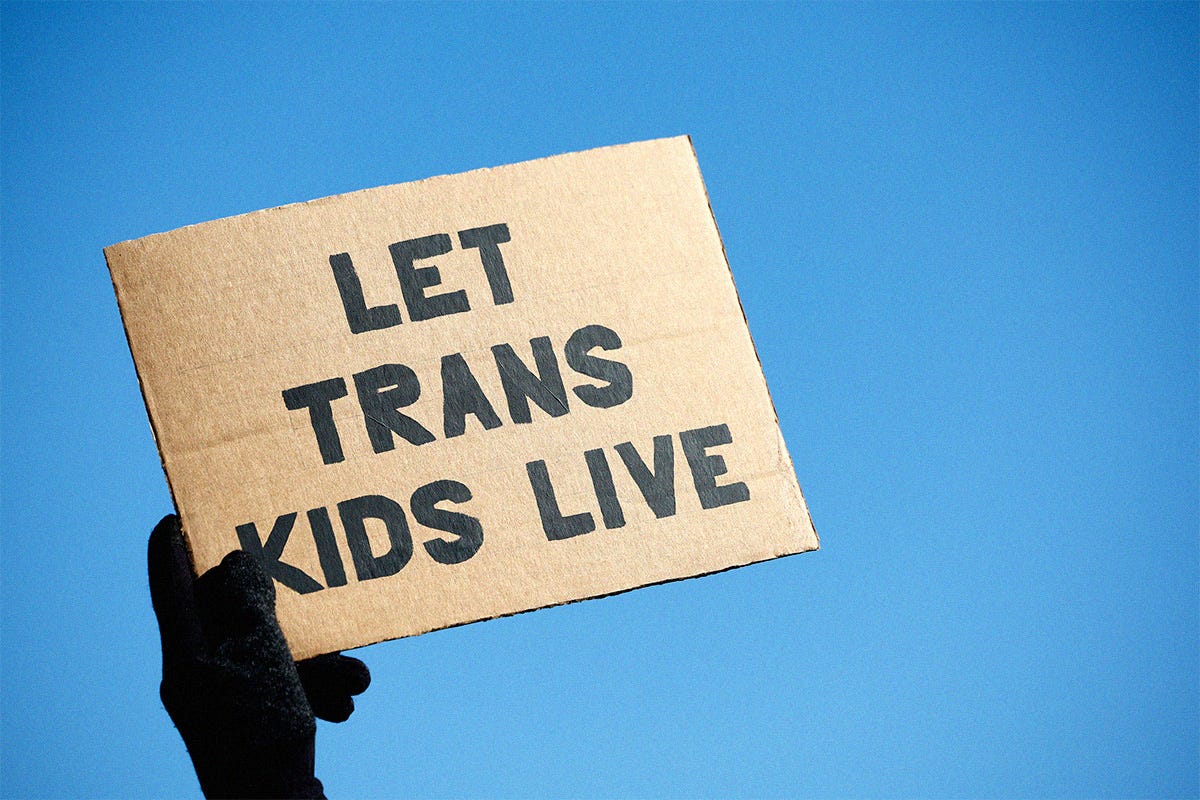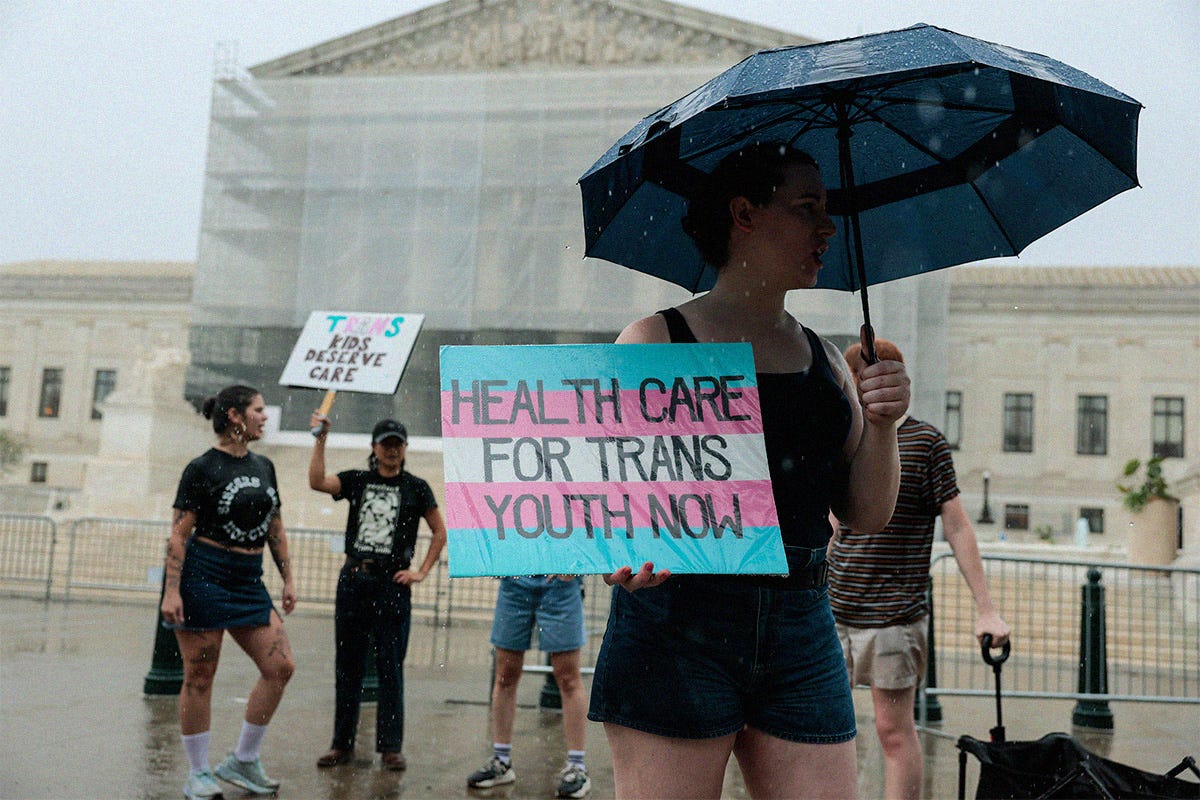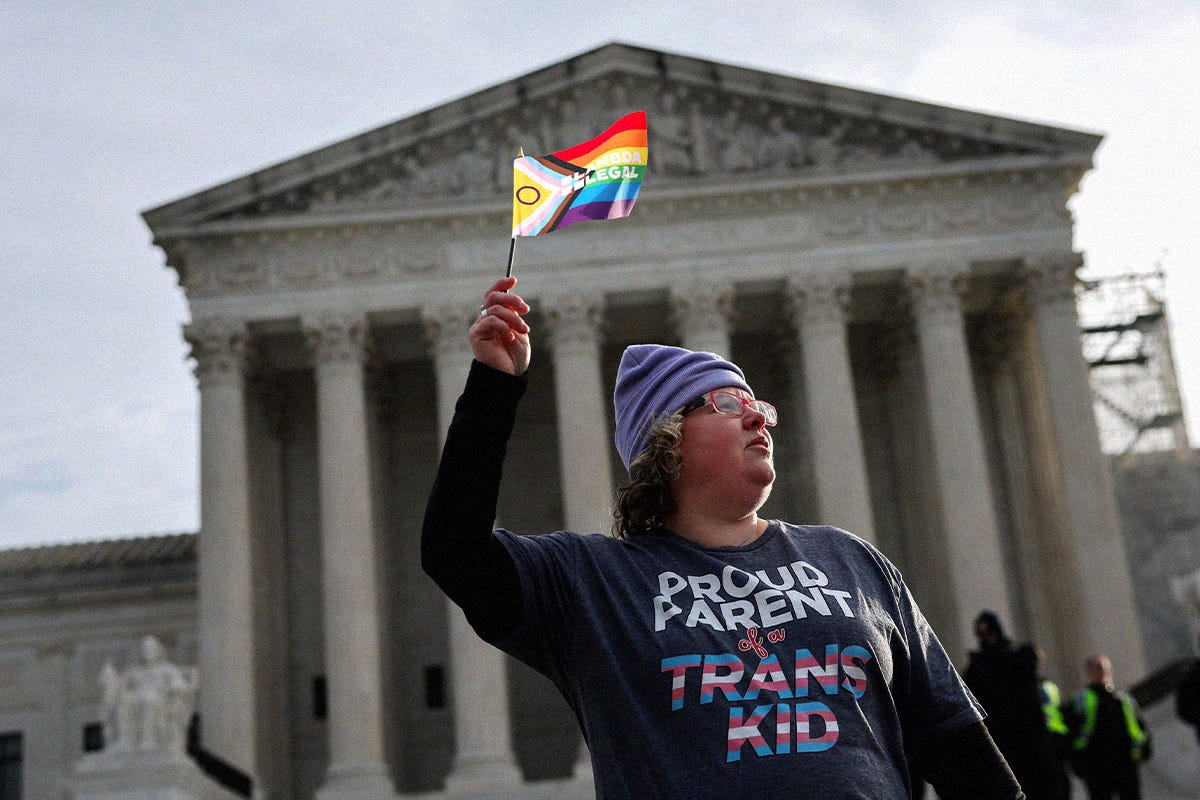BREAKING: Boston’s Leading LGBTQ+ Clinic Halts Trans Youth Health Care
Fenway Health, Boston’s flagship LGBTQ+ health center, has stopped prescribing puberty blockers and hormones to minors, citing federal pressure.
One of the most prominent LGBTQ+ health care providers in the U.S. has ceased providing gender-affirming medical care to minors, in a significant blow to affirming trans health care access.
Patients say Boston’s Fenway Health notified them on Monday that the community health center would no longer offer treatments like puberty blockers and hormone replacement therapy (HRT) to individuals under the age of 19. In an electronic letter, Fenway’s chief medical officer, Will Giordano-Perez, claimed that the changes were in “response to a shifting federal landscape that requires us to adapt in order to remain compliant, sustainable, and able to provide health care, support, and services to all our patients and the community.” Ignoring threats from the Trump administration targeting health care providers could jeopardize Fenway Health’s federal funding and its ability to remain operational, he explained.
“Being a [federally qualified health center] allows us to continue delivering high-quality comprehensive care for more than 30,000 residents of New England and beyond,” Giordano-Perez said of a potential funding shortage. “Its loss would significantly challenge our ability to meet the needs of all who rely on us.”
Jude Stevens, an 18-year-old patient at Fenway Health, says the news totally blindsided him. After relocating from a conservative state that outlawed trans youth medicine in 2023, Stevens believed that his health care would finally be safe in Massachusetts. The Bay State is one of nearly two dozen in the U.S. with comprehensive LGBTQ+ civil rights protections on the books, and in May, Massachusetts’ out lesbian governor, Maura Healey (D), signed an expansion to its existing shield law. Enacted in July 2022, the statute bars the prosecution of trans patients and families traveling from red states to seek gender-affirming treatments.
Stevens was shocked then to see Monday’s message in his My Chart portal — which Fenway Health uses to communicate with patients — abruptly ceasing care. When he went to the pharmacy the same day to refill his HRT prescriptions, Stevens says he was forced to pay out of pocket and only given a month’s supply, with no refills. While the letter provided recipients with a phone number if they wished to speak with their provider, there was no one around to take the call. Fenway Health’s communique was sent on Indigenous Peoples’ Day, a national holiday.
“I feel exhausted,” Stevens, who requested the use of a pseudonym, tells Queer Agenda. “I’m very disappointed that this happened, especially in a state that I thought was going to offer some of the strongest protections in the nation for trans kids. At this point, I’m not even a kid anymore. I’m an adult seeking care, and I’m still not able to get that.”
Fenway Health is not the only major medical provider to restrict gender-affirming care as a result of pressure from the White House. After President Donald Trump signed a week-one executive order vowing to revoke federal funding from affirming medical providers, at least 21 U.S. hospitals have either paused their trans youth health care programs or discontinued them altogether. These have included Children’s Hospital Los Angeles and Lurie Children’s Hospital in Chicago. Kaiser Permanente, meanwhile, announced in July that it would no longer offer gender-affirming surgery for youth in its 55 U.S. hospitals — a practice which was already performed only in rare instances of extreme medical need.
As federal authorities force medical providers into compliance, sources tell Queer Agenda that they did not expect Boston’s longest-running LGBTQ+ health care provider to follow suit. At the September 10 launch party for her book, Raising Trans Kids, gender specialist Rebecca Minor says that Fenway Health’s executive vice president of donor relations, Dallas Ducar, vowed that its staff would “double down on our commitment to the work we have been doing for 50 years.” Briefly addressing audience members, Ducar said at the time, “We’re not backing down.”
“I feel both horrified about what this means for the families that I work with, but also somewhat betrayed, knowing that Fenway had made such a loud and proud commitment to never backing down in the face of executive orders,” Minor says. “While I understand that they’re being forced to choose between their funding and their values, it’s kids that are paying the price.”
Other critics of Fenway Health’s decision to halt gender-affirming care took issue with the way patients were notified. Beth Niernberg, a Boston-based mother of a trans child, notes that the letter references “federal requirements that went into effect October 1,” but that information was not relayed for another 12 days. And as a licensed mental health counselor, she feels the news should have been communicated in person: “No one should open an email in a portal to find out that their child can’t get the gender-affirming care they were supposed to receive next Thursday.”
Although Fenway Health’s message promised to help youth and their families find new gender-affirming care providers, Niernberg says that she and her colleagues spent most of Monday fielding questions from panicked parents over the phone: Where do I go now? How do I explain this disappointment to my child? Many specialists in the field of trans youth medicine are already facing high demand, potentially leading to long wait times for new patient referrals.
“I think that there is a level of responsibility you have when a patient belongs to you,” Niernberg tells Queer Agenda. “As a therapist, if you’re my client, you’re my responsibility. Until you’re someone else’s client, you’re my responsibility. I feel like all of these patients who are freaking out at home right now are still Fenway’s responsibility.”
Despite the ongoing fallout from the Trump administration’s assault on trans health care, experts say these treatments remain safe, effective, and in many cases, life-saving. Jack Turban, a pediatric psychiatrist and author of the book Free to Be, says that gender-affirming care has been repeatedly shown to alleviate anxiety, depression, and gender dysphoria among trans youth, while also helping them navigate everyday life.
Some of the patients he has treated, he adds, are “unable to shower or go to school” without the medications that help them feel like their most authentic selves. Because of the care they have received, Turban says that many of his young patients are living their best lives, but he worries that, with yet another critical resource being lost, fewer trans youth will have that opportunity.
“For a long time, the script was that trans kids were always struggling,” he tells Queer Agenda. “But with the advent of these gender-affirming care models, I have patients who are going off to college, graduating from Ivy League universities, and just doing really well. The concern is that, as the Trump administration is attacking this care, we’re going to lose that progress. A lot of these kids are going to be hurt in the process.”
Many families say the drastic reduction in access to gender-affirming care across the U.S. has already caused immense harm. Gloria Reed, a parent who asked that her family’s real names not be used in this story, says that her teenage daughter, Mia, had been waiting to start HRT at Fenway Health, but now, with the shuttering of its trans youth gender clinic, the girl worries about being forced back to square one. When Mia learned on Monday that she would have to get her gender-affirming care somewhere else, she refused to believe the news. She got into bed and pulled the covers over her head, insisting that it couldn’t be real.
Reed’s daughter has been through a lot, whether it’s dealing with bullies at school or being forced to delay medical care. Even before this week’s letter, Mia had faced pervasive barriers to treatment that kept her from getting the one thing she has ever really wanted: a typical, ordinary childhood. She just wanted to feel like she fit in with the other girls at school, and until Monday, she had hope that that goal was finally within reach.
“She was in a good place,” Reed tells Queer Agenda. “Now to be hit with this, it’s just devastating. I want her to have an easier life. It’s hard enough being 16. To have to be 16 and have all this is just unfair.”
When reached for comment on this story, a representative for Fenway Health referred Queer Agenda to a shortened version of the statement sent to patients.








Thank you for reporting on this story.